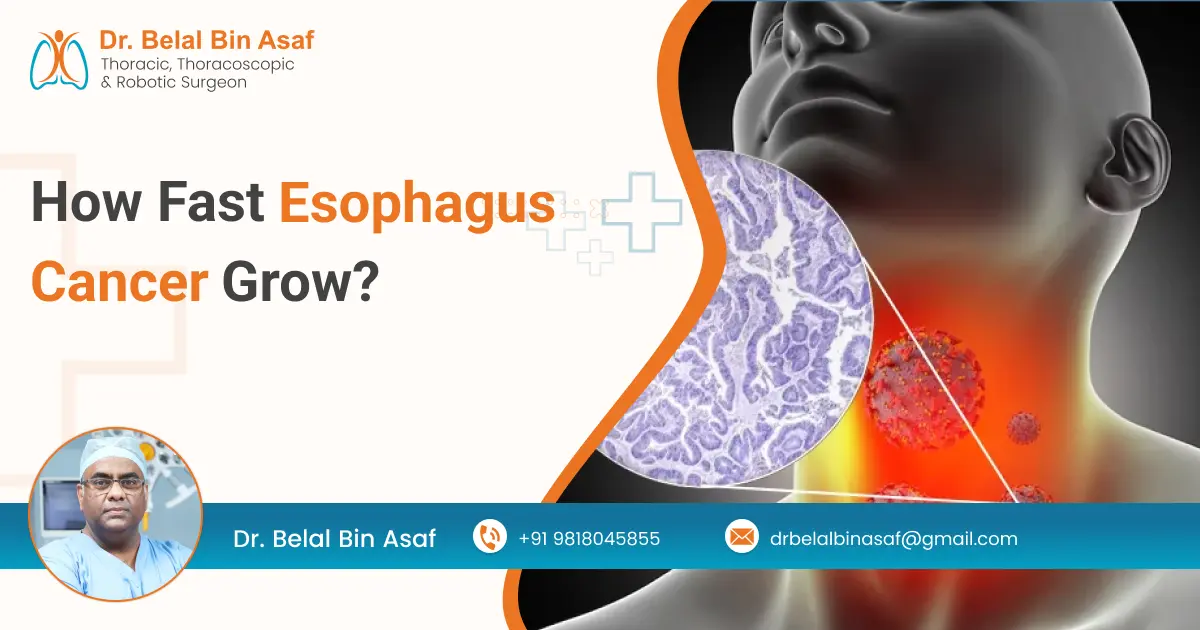Esophageal cancer can be a deceptive disease—often growing quietly before making its presence known through noticeable symptoms. The speed at which esophagus cancer grows depends on multiple factors such as the type of cancer, the stage at diagnosis, and a person’s overall health. Some tumors grow slowly over several years, while others spread aggressively in a matter of months.
Contents
Does Esophageal Cancer Grow Slowly at First?
Yes, esophageal cancer typically grows slowly in its earliest stages. It often begins in the innermost lining of the esophagus (the mucosa) and may remain there for a long time without causing symptoms. In this stage, the tumor is small and usually hasn’t invaded the deeper tissue layers or nearby organs.
Unfortunately, this slow beginning makes early detection difficult without proactive screening—many cases are discovered only after symptoms appear.
What Happens When Symptoms Start to Show?
Once symptoms arise—such as difficulty swallowing (dysphagia), chest discomfort, or unexplained weight loss—it often signals that the tumor has grown large or spread beyond the esophagus.














 +91-9818045855
+91-9818045855
